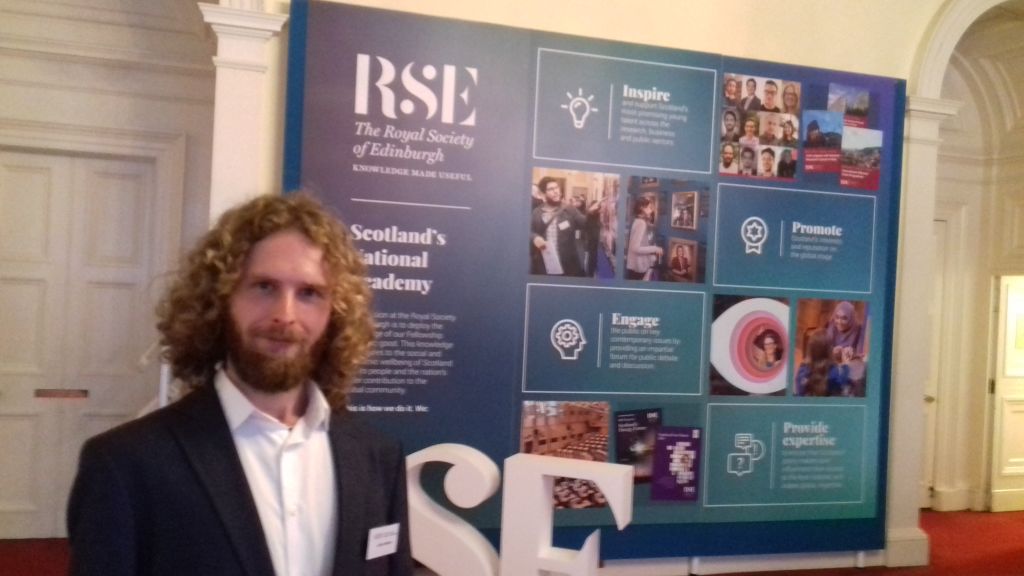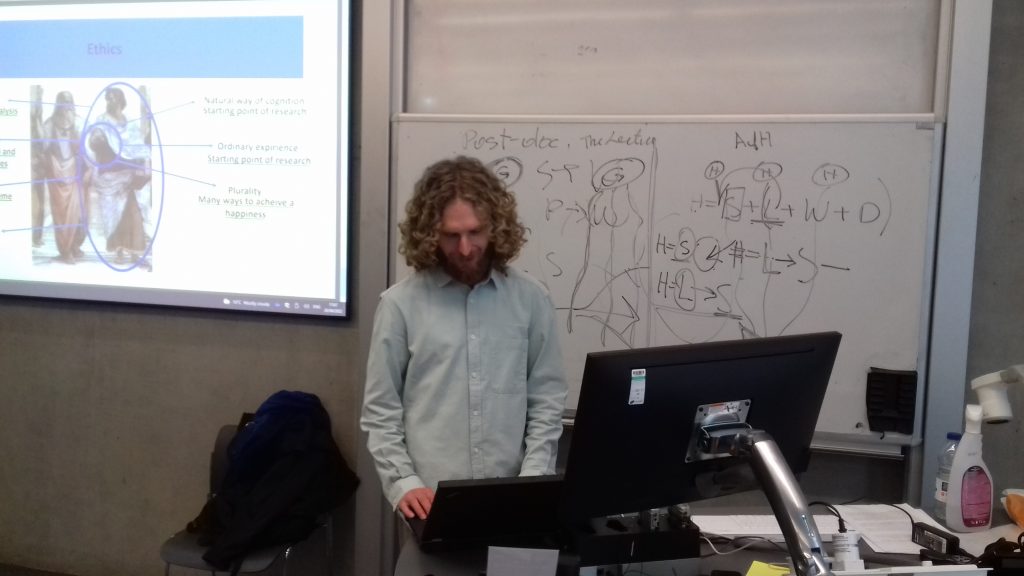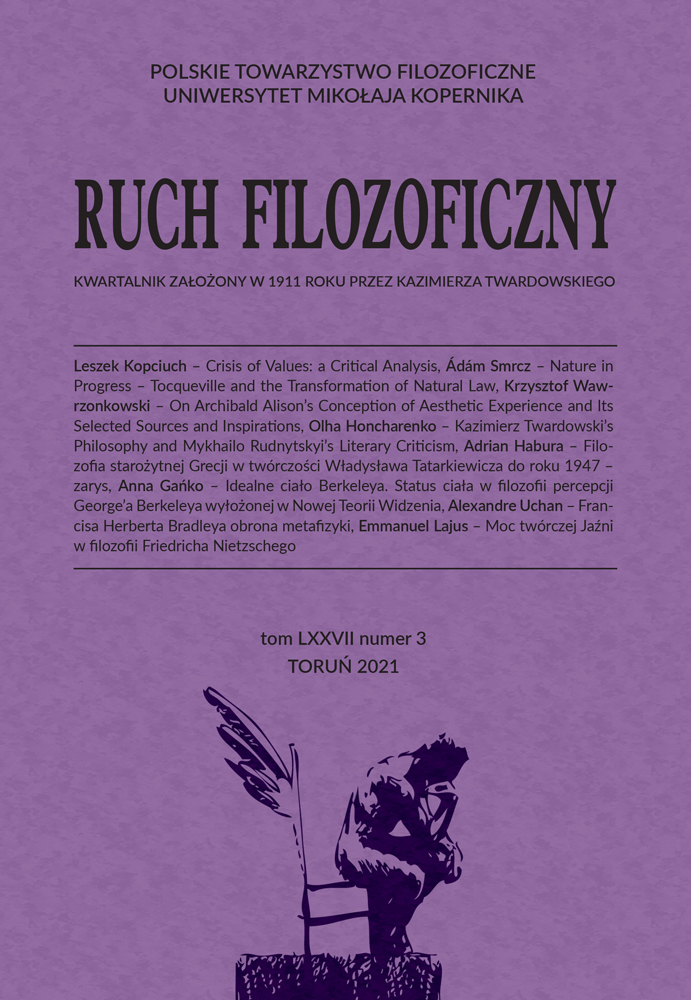Home » Posts tagged 'ethics'
Tag Archives: ethics
Adrian Habura’s Visit at the University of Edinburgh
In the second half of April, a member of our research group, Adrian Habura, travelled to Edinburgh to visit the School of Philosophy, Psychology & Language Science (PPLS) at the University of Edinburgh and attend two conferences there.
The first conference was organized by the Northern Association for Ancient Philosophy (NAAP) and took place on the 19th and 20th of April. Habura had there an opportunity to listen to talks focused on various issues in the history of ancient philosophy and its reception. At the end of the first day, there was a special session devoted to the memory of Sarah Broadie (1941-2021), an English philosopher and expert in ancient philosophy, focusing on both ancient and contemporary ethics.
The second conference was organized by the British Society for History of Philosophy and took place in the building of the Royal Society of Edinburgh between 21th and 23th of April. Some sessions there were focused on issues in ancient philosophy. This conference too had a special section devoted to Sarah Broadie and especially to her book, Plato’s Sun-Like Good (2021).

Although A. Habura did not deliver his paper at the conferences, he gave a talk: Władysław Tatarkiewicz (1886-1980). Life and Writings – Reception of Aristotle – Ethics, which was presented at the research seminar to Dr. Damian Caluori and Ph.D. students. Habura outlined Tatarkiewicz’s biography and his works referring to Aristotle’s thought. The main point was to sketch the Stagirite’s influence on Tatarkiewicz’s ethical considerations. The paper was subjected to a discussion and Habura received a valuable and helpful feedback, especially from D. Caluori.

A. Habura’s visit in Edinburgh was possible thanks to the grant from The W. Bednarowski Trust, and was co-funded by the Institute of Philosophy (University of Zielona Góra, Poland) and from the overheads of the past AΦR project.
Ancient Philosophy in Academic Curriculum of Władysław Tatarkiewicz

A paper by Adrian Habura, discussing Władysław Tatarkiewicz’s (1886-1980) works on ancient philosophy, which had been published by him by 1947, was published in “Ruch Filozoficzny” (vol. 77, 2021, iss. 3), the second oldest Polish philosophical journal. The paper is structured chronologically and presents results of careful sifting of all Tatarkiewicz’s works published before 1947.
Władysław Tatarkiewicz was a historian of philosophy and a philosopher, who studied ancient Greek philosophy throughout his entire research career. It is not surprising to say that he considered ancient philosophy to be the foundation of European philosophy. Furthermore, his original philosophical works indicate that the investigations of ancient Greeks were his major inspiration. The aim of this article is to provide an outline of those of Tatarkiewicz’s works in which Greek philosophy was explored by him as a topic of his historical research or used as the source of inspiration for his original philosophical reflection. The analysis of Tatarkiewicz’s works that were focused on Greek philosophy is related to Tatarkiewicz’s methodology. All this taken together allows to give a preliminary answer to the question of the significance of ancient Greek philosophy for his philosophical development and for philosophy in Poland in general.
Habura traces Tatarkiewicz’s academic biography back to his Ph.D. thesis from Marburg, which was devoted to Aristotle – and later reviewed by D. Ross – and Aristotelian inspirations in his subsequent paper on Weltansichten. One of the results of Tatarkiewicz’s stay in Marburg was his research on Plato, largely inspired by his Marburg teachers, Paul Natorp and Hermann Cohen. Later works by Tatarkiewicz in ethics, including his habilitation thesis, reveal his continuous direct and indirect references to Greek philosophers. In 1931 two volumes of his History of Philosophy saw the light of day, his opus magnum in historiography of philosophy, including, obviously, chapters on the Greeks, and in 1947 his treatise On Happiness appeared, with numerous references to ancient ethical systems.
This paper offers not only a mere report of Tatarkiewicz’s references to the ancients, but moreover, Habura succeeded in indicating connection between Tatarkiewicz’s historical interest in ancient philosophy and his own original research in philosophy and ethics.
Full paper in Polish is available on the journal’s website here.
Recent commentaries